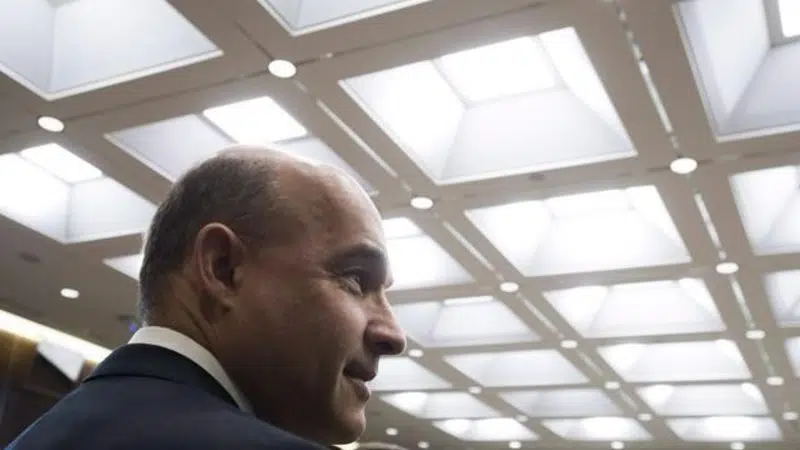
Balsillie decries toxic, unchecked technology at big data committee
OTTAWA — A Canadian high-tech pioneer says a “toxic” social media business model is a threat to democracy.
Jim Balsillie, the retired chief executive of Research In Motion, which invented the Blackberry smart phone, offers that grim warning in testimony today before the international grand committee on big data, privacy and democracy.
Balsillie, now the chair of the Ontario Centre for International Governance Innovation, says technology, if left unchecked, will displace print and broadcast media, and he urged a panel politicians to impose restrictions on big internet companies.


